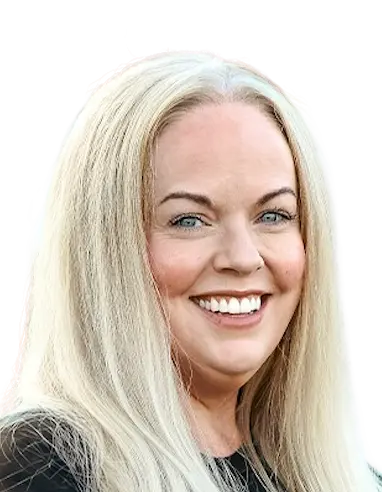Outpatient Rehab for Addiction
Outpatient Rehab for Addiction in Boston
-
 Written By:
Shore Point Team
Written By:
Shore Point Team
-
 Edited By:
Shore Point Team
Edited By:
Shore Point Team
-
 Clinically Reviewed By:
Erin Andrade, LICSW
Clinically Reviewed By:
Erin Andrade, LICSW
Summary: Shore Point Recovery supports seamless transitions to outpatient rehab, offering structured, personalized care that fits high-functioning lives. Programs maintain medical integrity, discretion, and continuity, helping clients apply recovery skills while balancing work, family, and daily life.
Table of Contents

Refined Recovery for a Life in Forward Motion
Sophisticated lives require sophisticated care. For individuals who would benefit from structured support following medical detox or residential treatment, Shore Point Recovery facilitates seamless transitions to select outpatient programs through our trusted clinical partners. These carefully vetted services extend the same standards of medical integrity, discretion, and personalized care that define Shore Point Recovery, ensuring that continuity of healing is never compromised by a change in setting.
Every referral is grounded in a deep understanding of your clinical needs and personal goals. Our team works closely with elite outpatient providers to coordinate care that aligns with your lifestyle, schedule, and therapeutic trajectory. Whether it’s an intensive outpatient program (IOP) or a more flexible outpatient framework, we prioritize environments that respect your privacy, support your progress, and sustain the refined balance you’ve begun to reclaim.
What Is Outpatient Addiction Treatment?
Outpatient rehab is a structured yet non-residential level of care designed to support sustained recovery while allowing for meaningful engagement with work, family, or creative pursuits. It offers clinical programming ranging from individual therapy to psychiatric services on a weekly or biweekly basis, tailored to meet you where you are in the arc of healing.
Outpatient care is often the final phase in the broader continuum of addiction treatment. It fosters long-term stability, reinforces therapeutic tools, and offers continuity as you navigate renewed autonomy and the complexities of everyday life.
Who Is a Good Fit for Outpatient Rehab?
Outpatient care is ideal for individuals who have reached a level of emotional and behavioral stability but benefit from continued therapeutic engagement. It offers the opportunity to apply recovery skills in real time, while maintaining a clinical connection and safe space for reflection.
Outpatient rehab may be suited for those who:
- Are stepping down from intensive outpatient (IOP) or partial hospitalization (PHP)
- Have a stable home environment and external support systems
- Are resuming careers, academics, or family roles with increased confidence
- Require occasional but consistent professional guidance
- Value discretion, continuity, and autonomy in equal measure
Our team works closely with each client and family to determine whether outpatient care is the right next step.
What to Expect from Outpatient Programming
Outpatient rehab programs vary in format, but all Shore Point–vetted providers share a core commitment: to deliver clinically rigorous, personalized care that aligns with your lifestyle, preferences, and progress. Depending on your needs, programming may include:Individual TherapyConfidential, one-on-one sessions focused on emotional insight, accountability, and life integration. |
Group SupportTherapist-facilitated groups offer perspective, community, and encouragement for continued growth. |
Psychiatric ServicesMedication management and psychiatric follow-up are available to support mood regulation and mental health balance. |
Family InvolvementAs needed, sessions with loved ones may help restore trust, improve communication, and support ongoing connection. |
Relapse PreventionClinicians help identify triggers, reinforce coping strategies, and plan proactively for long-term resilience. |
These services are designed not as checkboxes, but as curated components of care delivered at a pace that honors your recovery and respects your responsibilities.
Seamless Transition from Higher Levels of Care
While Shore Point Recovery specializes in medical detox and residential care, our commitment to your healing extends beyond our direct offerings. For those ready to engage in a structured yet flexible next phase, we coordinate with a select network of outpatient providers who reflect our exacting standards in clinical expertise, discretion, and personalized care. Every referral is intentional, every transition seamless. To begin a private conversation about continuing care options, contact our team.
Looking Ahead: The Full Continuum of Care
Outpatient rehab is the beginning of sustainable integration. For many, it marks a transition from formal treatment to everyday life, with structure still available as needed.
The broader continuum of care may include:
- Recovery Coaching: Personalized support from trained professionals for accountability and motivation
- Wellness & Holistic Integration: Nutrition, movement, sleep, and mindfulness support for whole-person health
- Alumni Community: Peer connection, private events, and shared experience for continued encouragement
- Emergency Support: Re-stabilization options and clinical check-ins during times of stress or transition
Whether rebuilding relationships, navigating professional landscapes, or stepping into a new identity and purpose, support remains within reach.
Begin with Clarity. Continue with Confidence.
You’ve already taken the first step. Now, let us help you build a recovery that fits your life.
Contact Shore Point Recovery for a confidential consultation. Our admissions team will walk you through available outpatient options, coordinate care with elite providers, and ensure you or your loved one remains supported at every phase of the journey.
You may also verify your insurance online at your convenience, or call (508) 938-8079 to speak directly with our team. Every conversation is private. Every referral is intentional. Every journey is honored.
Frequently Asked Questions
What is outpatient rehab and how does it differ from inpatient care?
Inpatient care immerses you in a fully residential environment with 24-hour oversight. Outpatient care maintains the same clinical precision while allowing you to remain in your own residence, travel as needed, and continue professional or personal engagements. It’s treatment woven into the fabric of your life, not a pause from it.
What types of outpatient programs are available?
Options vary in scope and intensity. Standard outpatient programs may meet only a few hours each week, intensive outpatient programs (IOPs) offer a more immersive multi-day structure, and partial hospitalization programs (PHPs) provide near full-day programming without overnight stays. The format is selected to complement your lifestyle, priorities, and stage of recovery.
Who is a good candidate for outpatient rehab?
This level of care is suited to individuals who have achieved stability, value autonomy, and maintain a safe, supportive environment outside of treatment. It’s ideal for those balancing recovery with leadership roles, business commitments, travel, or family life, while still benefiting from professional oversight as a safeguard.
Does outpatient rehab include counseling or medication?
Services extend far beyond basic counseling. You can expect expertly facilitated individual and group work, discreet psychiatric oversight, medication management where appropriate, and tailored relapse-prevention planning. Many programs also integrate care for co-occurring mental health concerns, ensuring that emotional and psychological wellness are addressed in equal measure.
How long does outpatient rehab typically last?
The duration is driven by your progress and objectives, not a predetermined calendar. Some complete a structured phase in a matter of weeks; others maintain a lighter schedule over several months to preserve continuity during transitional or high-pressure periods.
Is outpatient rehab effective?
Yes, particularly when it’s deliberately matched to your recovery stage and reinforced by consistent engagement. Outpatient care allows you to apply therapeutic strategies in real-world contexts while retaining immediate access to professional insight and adjustment when needed.
Does insurance cover outpatient rehab, and what are the costs?
Many premier programs accept insurance, but policies and coverage levels vary. Our team can discreetly handle all verifications, so you have complete clarity on coverage and any direct investment required before you commit to a program.
Table of Contents
Most Insurance Policies
Cover Treatment.
"*" indicates required fields
About The Contributors

Erin Andrade, LICSW
Program Director

Shore Point Team
Team Member

Shore Point Team
Team Member
Frequently Asked
Questions About Recovery
What is outpatient rehab and how does it differ from inpatient care?
Inpatient care immerses you in a fully residential environment with 24-hour oversight. Outpatient care maintains the same clinical precision while allowing you to remain in your own residence, travel as needed, and continue professional or personal engagements. It’s treatment woven into the fabric of your life, not a pause from it.
What types of outpatient programs are available?
Options vary in scope and intensity. Standard outpatient programs may meet only a few hours each week, intensive outpatient programs (IOPs) offer a more immersive multi-day structure, and partial hospitalization programs (PHPs) provide near full-day programming without overnight stays. The format is selected to complement your lifestyle, priorities, and stage of recovery.
Who is a good candidate for outpatient rehab?
This level of care is suited to individuals who have achieved stability, value autonomy, and maintain a safe, supportive environment outside of treatment. It’s ideal for those balancing recovery with leadership roles, business commitments, travel, or family life, while still benefiting from professional oversight as a safeguard.
Does outpatient rehab include counseling or medication?
Services extend far beyond basic counseling. You can expect expertly facilitated individual and group work, discreet psychiatric oversight, medication management where appropriate, and tailored relapse-prevention planning. Many programs also integrate care for co-occurring mental health concerns, ensuring that emotional and psychological wellness are addressed in equal measure.
How long does outpatient rehab typically last?
The duration is driven by your progress and objectives, not a predetermined calendar. Some complete a structured phase in a matter of weeks; others maintain a lighter schedule over several months to preserve continuity during transitional or high-pressure periods.
Is outpatient rehab effective?
Yes, particularly when it’s deliberately matched to your recovery stage and reinforced by consistent engagement. Outpatient care allows you to apply therapeutic strategies in real-world contexts while retaining immediate access to professional insight and adjustment when needed.
Does insurance cover outpatient rehab, and what are the costs?
Many premier programs accept insurance, but policies and coverage levels vary. Our team can discreetly handle all verifications, so you have complete clarity on coverage and any direct investment required before you commit to a program.


